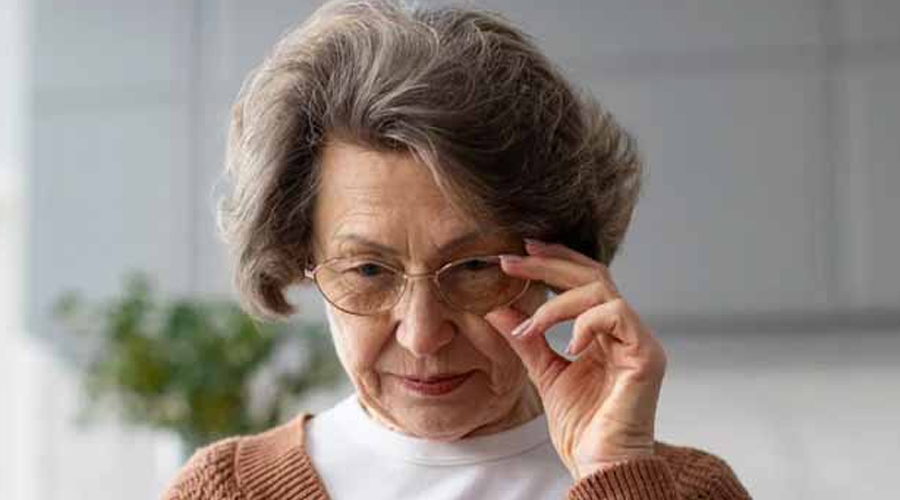The day of my grandmother’s funeral was sunny. No thunderclaps, no storm clouds. Just warmth. The kind she always carried with her.
Her name was Eleanor and she served her church for nearly five decades without ever asking for anything. Until she needed them. And they gave her nothing.
Not one church leader came. Not by mistake but by design. They were not invited.
It wasn’t always like this, though. My grandmother was a pillar in that church. A Southern Baptist congregation that prided itself on “family values,” tradition, and photo ops of the pastors shaking hands with senators.
She was the kind of woman who showed up without being asked, who filled in for the sick nursery worker, cooked extra casseroles, and stayed late to wipe down folding tables.
She taught Youth Bible Study every Sunday night, helped plan fellowship dinners, drove the church van to retreats and choir tours. She tithed faithfully and gave extra Home Missions. She even funded scholarships for church kids who couldn’t afford to go on mission trips.
Nobody asked her to, she just did it.
She was faithful. She was humble. She was invisible, in the way that older women who do all the work and none of the talking often are.
Her greatest gift wasn’t her service, it was how she made people feel. You never left Eleanor’s kitchen or classroom without feeling taller. She saw you. That was her superpower.
I was seven the first time I stayed at Grandma Eleanor’s house by myself. Grandpa Walter was away on a fishing trip. So, it was just me and her. I remember waking up in the middle of the night, scared by a dream I couldn’t remember, and padding down the hallway in my socks.
I didn’t even have to knock, she was already opening the door.
She let me crawl into her bed without a word. Her sheets smelled like lavender and old books. She hummed a hymn I didn’t know the words to, but the melody stuck with me for years. Her hand rubbed soft circles on my back until my breath slowed.
That was her magic. She didn’t always know what to say. But she knew what you needed.
When I had my first heartbreak at 16, she was the only one I wanted to talk to. She didn’t give advice. She didn’t offer clichés. She just poured sweet tea into glass jars and sat with me on the porch.
At one point, she reached over, tapped my knee, and said, “If someone makes you feel small, they don’t belong near the big, beautiful things inside you.”
I cried harder after that, not because I was sad but because she saw me. She always had.
She taught me how to pray, how to iron a blouse properly, and how to take the high road without letting people walk all over me. She had this quiet strength that felt like standing next to a mountain.
No flash. No noise. Just steady, solid presence.
She was more than my grandmother. She was the compass I measured the world against.
And when she was abandoned, when they made her feel small, I promised myself I wouldn’t let that be the last chapter in her story.
My grandmother was 73 when everything changed. She was in a car accident that left her disabled. Her legs never fully recovered. Her bones ached constantly. The woman who used to garden before sunrise now struggled to climb the porch steps without her cane.
So, she wrote letters. She called. She asked the congregation for rides, prayer, and even visits.
They didn’t come. Not even one of them.
Not Pastor J., the man who baptized her grandkids and gave her the plaque for “Most Years of Service.”
Not Pastor M., the younger one who took over youth ministry and once proudly announced to the congregation that “Miss Eleanor’s potato salad could save souls.”
For ten years, she stayed home. She listened to sermons online.
“Come home, Callie,” she told me one day on the phone. “Let’s listen to sermons together, baby. Let’s pray together. And when we’re done, we can have some fresh scones and jam. I’ve been teaching Grandpa how to bake.”
I used to do exactly what she wanted. She was my favorite person in the entire world, I would have done anything she asked.
Gran mailed in her tithe. She still sent cute birthday cards and batches of cupcakes to the church kids she used to teach.
And still, they never came.
I was 16 when I first realized what was happening. I visited Grandma every Sunday after church, still wearing my dress and heels, sometimes bringing her slices of lemon cake from the bakery she liked.
Every time, without fail, she’d ask the same thing.
“Did you see Pastor J., my Callie? Did he say anything about me?”
At first, I lied. Not big lies, just small, soft ones that would land easy on her heart.
“He says he’s praying for you,” I’d nod. “He asked how you were doing. He said he misses your cornbread, Gran.”
It made her smile. That kind of hopeful, aching smile people wear when they know something isn’t true but need to believe it anyway. I hated how easily she accepted the scraps of comfort I gave her.
But one day, I couldn’t do it anymore.
She asked me the question again as she added a spoon of sugar to her tea. She was all hopeful eyes and soft cardigan sleeves.
This time I wasn’t going to lie.
“Gran… they don’t talk about you anymore. I’m sorry.”
“What do you mean, Callie?” she asked.
“I mean… they don’t ask about you.”
She didn’t flinch. She just nodded once. Like she already knew. Like her heart had already made peace with being forgotten. But I could see it in the way her hand stopped mid-stir in her tea.
She didn’t drink it that day.
And she never brought them up again.


